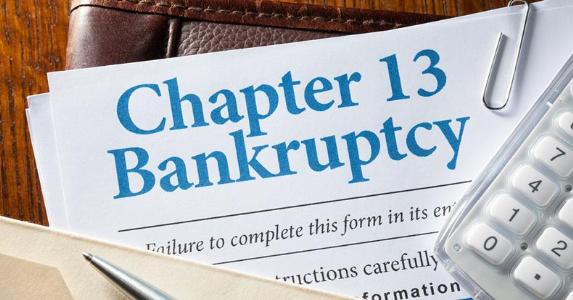When considering whether to file bankruptcy, there may be significant factors that determine whether Chapter 13 or chapter 7 is best for you. Personal bankruptcy generally consists of a liquidation chapter, otherwise known as Chapter 7. It also includes Chapter 13, otherwise known as a reorganization/repayment chapter. The most significant analysis to be done for a client is determining if the client is eligible for Chapter 7 or Chapter 13, or both.
There are major difference between the two chapters. When filing a Chapter 7, debtor’s debt is discharged, and the bankruptcy is complete in 4 to 5 months. In comparison, in a Chapter 13, you make monthly payments for a fixed period of time, then debtor’s debts will be discharged. The amount of the monthly payment is based on a multitude of factors. The debtor will make the monthly payment over a three or five year period. This period is known as the applicable commitment period and it’s length is based on a multitude of factors.
There are significant reasons why filing Chapter 13 over Chapter 7 would be more beneficial.
Here are the top ten reasons why Chapter 13 may be the better option.
- A debtor may have a feeling of moral duty and responsibility to creditors. There is a general sense of obligation to repay debts. A Chapter 13 allows debtors to repay that debt at potentially more favorable terms.
- A debtor may want to keep property that is non-exempt. Let me explain. The Bankruptcy Code permits exemptions on property (Pennsylvania provides the debtor a choice between federal or state exemptions, Maryland does not recognize federal exemptions). If property is fully exempt, then a debtor can keep the property. If it is not fully exempt, then the debtor may lose the property in Chapter 7. In a Chapter 13, the individual does not lose property, but instead can keep non-exempt property. The amount of non-exempt property factors into the monthly payment in a Chapter 13.
- A debtor may have priority debt. Priority debt consists of tax debt and domestic support debt. Priority debt is generally not dischargeable. Chapter 13 bankruptcy stops tax collections efforts while allowing a debtor to the debt through the Chapter 13 plan. Some tax debt may not have to be repaid, but that is a different analysis.
- Times can be tough, life changes happen, and debtors fall behind on mortgages or face home foreclosures. Chapter 13 is an option to stop the foreclosure process and allow a debtor to catch up mortgage arrears through the Chapter 13 plan. Saving the home is one of the top reasons debtors seek bankruptcy relief.
- A debtor may want to ‘strip’ a lien off real property. A debtor may have a second mortgage or home equity loan, but are underwater on their home value. Let’s assume a debtor has a first mortgage of $150,000. The current property value is $140,000. The debtor also has a second mortgage of $35,000. Since the mortgage balance is greater than that property value, the $35,000 second mortgage is not secured and can be stripped off the property and treated as unsecured debt.
- A debtor may want to ‘cram down’ a loan or change loan terms of a debt. What does ‘cram down’ mean? Let’s say a debtor has a car with a $22,000 loan. Let’s also assume the actual value of the car is $12,000. Chapter 13 permits the car loan to be crammed down to $12,000, while the remaining $10,000 becomes unsecured debt. Additionally, Chapter 13 may also allow the proposal of more favorable interest rates.
- A debtor may have another individual on a loan they hold, otherwise known as a co-debtor. An example would be a debtor having Mom or Dad as a co-debtor or co-signor of a loan. Chapter 13’s automatic stay provision protects both the debtor and the co-debtor from collection efforts. A Chapter 13 plan also permits a loan that has a co-debtor to be treated specially, meaning the co-debt loan can paid in its entirety through the Chapter 13 plan.
- Filing a Chapter 13 bankruptcy is an avenue to stop wage garnishments and unfreeze frozen bank accounts.
- A debtor may have substantial student loan debt. Although student loans are treated as unsecured debt, they are generally not dischargeable. However, while in a Chapter 13 plan, the debtor is not making student loan payments. In essence, the student loans are in a ‘forbearance’ type status.
- A statute of limitations may prohibit a debtor from filing Chapter 7. If a debtor has had a Chapter 7 discharge within the last 8 years, the debtor will not be eligible to file Chapter 7, but may still be eligible to file Chapter 13.
If you are considering filing bankruptcy and live in Pennsylvania or Maryland, call Mooney Law today for a free consultation to see if bankruptcy is right for you, and if so, which chapter best fits your needs. Call us today at 833-MOONEYLAW or at 717-200 HELP for a FREE consultation.



